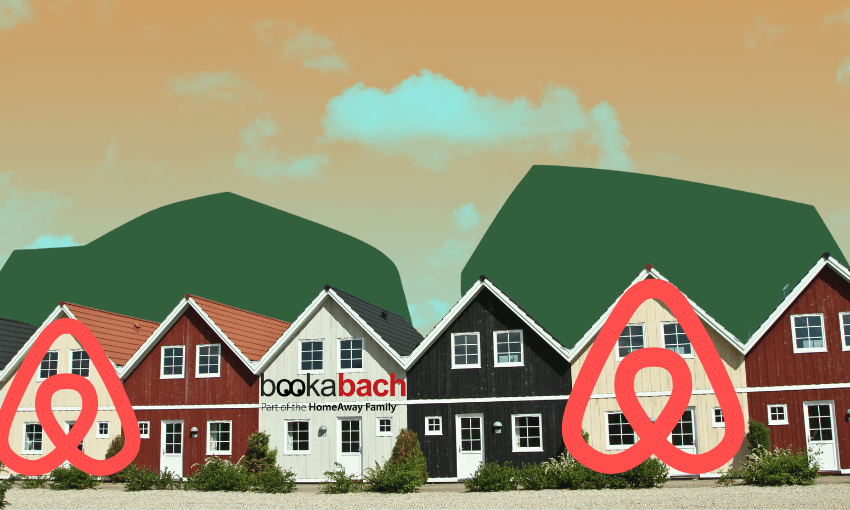The government is working to pass a bill extending the time parents can access free postnatal support — but the health workers who would have to provide the care say it would overwhelm an already under pressure system.
The Pae Ora (Healthy Future) (3 Day Postnatal Stay) Amendment Bill, introduced by National MP Catherine Wedd but popped in the member’s bill biscuit tin five years ago by MP Louise Upston, seeks to raise the time new parents are able to receive postnatal care. Currently, these services are available to whānau for up to 48 hours after giving birth – this bill would push that time out to 72 hours.
This care includes support with breastfeeding and physical recovery, as well as emotional support and guidance. The bill also includes a requirement for lead maternity carers to inform the new parent of their eligibility for care.
Few would argue for less postnatal care and it’s a well intentioned idea, maternity experts say, but Aotearoa just doesn’t have the resourcing to support it.
The bill had it’s first reading in December, with National, Labour, the Green Party, Act and NZ First all supporting it (Te Pāti Māori was not present for the reading). Wedd described her own traumatic birthing experience 14 years before; “the horror, the emotion of not knowing whether you were going to survive or your baby was going to survive.” She said she understood the country’s “health system is under pressure”, but was heartened by a Health New Zealand report which showed an increase of 97 new midwives in 2024 compared to the year prior.
“I want to make sure that all new mothers can have access to the postnatal support that they need,” Wedd said. “We owe all mothers and babies across our country this opportunity. The first 1,000 days of a baby’s life are critical; the first three days of a baby’s life are fundamental.”
The health committee heard submissions on the bill on Wednesday morning, with many maternity experts telling the committee they could not support it for various reasons, but primarily because the country cannot currently keep up with maternity care needs. Many suggested the government’s focus was better placed on other issues within maternity care, such as further funding to community-based maternity care providers or having this care prioritised for new parents most in need, rather than encouraging parents to use the care available simply because it is there.
E Tipu E Rea Whānau Services, a health provider for Ngāti Pāoa Iwi Trust, advocacy manager Lizzie Strickett (Ngāpuhi, Te Aupōuri) said the bill is a step in the right direction, but it would not address systemic inequalities faced by Māori whānau. Strickett shared her own experience of losing her māmā during childbirth – she had contracted strep A, a treatable disease but one which took her life due to lack of care from hospital staff – and how that loss informed Strickett’s own decisions to give birth at home. “The same delays and lack of timely care that took my mum’s life continue to impact my life today,” Strickett told the committee.
“We know our midwives and nurses are amazing, but how can they be expected to do their jobs well when they’re under-resourced and overwhelmed?” Strickett asked. She said the bill must “go beyond incremental changes”, and recommended prioritising need over entitlement and creating better access to kaupapa Māori-led postnatal care as more effective support for whānau.
Virtually all submitters agreed new parents should have more access to postnatal care and that access to funded care should be bumped up further than an extra 24 hours. But even an extra day of care would require more than the under resourced sector is realistically able to provide, the committee heard.
The New Zealand College of Midwives’ chief executive Alison Eddy told the committee that postnatal care has always been the “Cinderella” of healthcare, because it’s “historically undervalued and treated as a lower priority in comparison to other areas of the service”.
Because of this, Eddy said her organisation did not support the bill. She cited the current issues with the “overloaded” maternity care system that she feared would worsen under the proposed amendments: a “significant shortage of midwives” leading to nurses without specialist training called in to fill the gaps and exacerbated bed block, leading to a less effective service across the board.
Eddy said investment in the postnatal period would be better placed elsewhere, such as paid parental leave entitlements, funding for in-home support, maternal mental health services or whānau needing complex birth support.
Birth Trauma Aotearoa founder and chief executive Kate Hicks said she supported the intention of the bill, but had concerns about its limitations. Hicks said that 50 women in Aotearoa experience a traumatic birth every day – about a third of total births daily – while 120 women per day are physically injured in birth. “Very few” of the community-based services which support these traumatic births receive government funding, Hicks said.
“There are huge costs associated with the status quo in terms of how we support these physically and psychologically injured parents,” Hicks said. “Importantly, the impact of maternal ill health affects not only the birthing parent, but also her baby, [and] her whānau.” Without specialised care and further training, Hicks worried the harm experienced during birth would “compound”.
“Aotearo’s parents and whānau also deserve meaningful, systemic, and lasting change that ensures their wellbeing in the long term”, Hicks said. “If we are to see that happen, we need more than just three days.”






